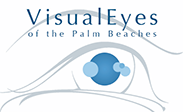Eye’m off to the right start
One way to make sure your child is off to the right start in school is to have his/her eyes examined by an eye care professional, such as an Optometrist. The National PTA reveals that there are many visual skills that are necessary for successful learning in the modern classroom and that skill deficiencies may contribute to poor academic performance.
There are different levels of vision examinations. A routine eye exam involves checking how well your child sees in the distance (ie. 20/20), their ability to detect depth, eye muscle balance, and the health of his/her eyes. A functional vision exam checks if your child has the necessary visual skills to read and learn. In this evaluation, the above mentioned are tested for in addition to making sure that your child’s eyes receive the same picture in each eye (so that there is no confusion with what and where they’re looking at), that they focus at the same point at the same time and that their eyes are able to move along the sentence smoothly and clearly (so that words and lines are not skipped), and that the child’s eyes are able to focus from near to far easily (making it easy to look from the chalkboard back to their notes).

The various vision problems that your child could experience are:
- Nearsightedness – trouble seeing in the distance
- Farsightedness – trouble seeing up close and/or in the distance
- Amblyopia (a.k.a. lazy eye) – one eye doesn’t receive the same information as the other and cannot be corrected with eyeglasses
- Strabismus – eyes turn inward or outward
- Various eye diseases
- Various functional vision disorders (ie. convergence insufficiency, convergence excess, oculomotor dysfunction)
Some common signs and symptoms can easily be observed in your child’s everyday activities. They are as follows:
- squinting when looking out at a distant object or even at something up close holds books close when reading and/or gets close to paper when writing excessively clumsy (bumps into objects)
- closes off one eye when looking at something
- blinks often
- extremely sensitive to lights (indoor/outdoor)
- gets tired when reading
- headaches after doing activities up close
- frequently “zones out” or daydreams
- has poor eye contact
- rubs an eye, especially when reading
- homework takes longer than it should
- child prefers to be read to
- child has poor reading comprehension
- child is having difficulty learning sight words
- is currently or has worked with a tutor
- child has received some type of therapy in the past or currently (ie. speech, language, and/or occupational) difficulty catching or kicking a ball
- has difficulty writing on the lines of the paper
- difficulty copying from board to paperIf any of the above are observed, your child may have a vision problem that could interfere with his/her ability to do well in school
- squinting when looking out at a distant object or even at something up close holds books close when reading and/or gets close to paper when writing excessively clumsy (bumps into objects)
- closes off one eye when looking at something
- blinks often
- extremely sensitive to lights (indoor/outdoor)
- gets tired when reading
- headaches after doing activities up close
- frequently “zones out” or daydreams
- has poor eye contact
- rubs an eye, especially when reading
- homework takes longer than it should
- child prefers to be read to
- child has poor reading comprehension
- child is having difficulty learning sight words
- is currently or has worked with a tutor
- child has received some type of therapy in the past or currently (ie. speech, language, and/or occupational) difficulty catching or kicking a ball
- has difficulty writing on the lines of the paper
- difficulty copying from board to paperIf any of the above are observed, your child may have a vision problem that could interfere with his/her ability to do well in school
Some performance clues that could indicate that your child may have a vision problem are as follows:
- child is smart in everything but school
- gets fatigued, and frustrated with school work
- has a short attention span
To locate an Optometrist who specializes in detecting these types of problems, go to www.covd.org or www.oepf.org. If none of the above are observed, it is still important to get your child’s eye health tested to rule out glaucoma or potential retinal problems.
In addition to an in-depth vision examination, the following are a few helpful hints to practice when your child is studying or doing homework:
- Hold reading material approximately 14 inches (the measured distance from the middle knuckle to the elbow).
- Sit up when reading or writing (leaning off to one side will cause more stress on one eye).
- Use good lighting that evenly illuminates the paperwork but does not create glare onto paperwork.
- Take breaks approximately every 20 minutes to move about or look at something in the distance.
- Dr. Debra A. Shim is a board certified Optometrist, whose office is located in the Bermudiana Plaza at the N. E. corner of University Blvd. and Military Trail. Our office is a family practice that specializes in detecting vision problems in both children and adults. For an evaluation, call 561-625-4380. We look forward to serving you and your family for all your vision care needs.
By making these simple observations and taking these simple precautionary measures, you will allow your child to start off with an advantage for the beginning of the school year.
